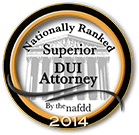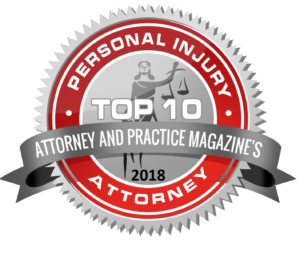When it comes to renting a property, both tenants and landlords have responsibilities to ensure a safe living environment. In Virginia, the issue of landlord liability in dog bite incidents is a complex area of law that can have serious implications for both parties. Dog bite cases can result in significant legal consequences, particularly when the incident occurs on rented property. Understanding the legal landscape of landlord liability in these situations is crucial for both landlords and tenants to protect their rights and interests.

Understanding Virginia’s Dog Bite Laws
Virginia operates under a set of laws that are designed to address dog bite incidents and the responsibilities of dog owners. The state follows a “one bite” rule, which means that a dog owner may only be held liable for injuries caused by their dog if the owner knew or should have known that the dog had a propensity for aggression or had previously bitten someone. This rule places a significant burden on the injured party to prove that the owner was aware of the dog’s dangerous behavior.
However, when it comes to landlord liability, the situation becomes more complicated. Virginia law generally does not hold landlords strictly liable for injuries caused by a tenant’s dog. Instead, the liability of the landlord depends on specific circumstances, such as whether the landlord had knowledge of the dog’s dangerous behavior and whether they took reasonable steps to address the risk.
When Can a Landlord Be Held Liable?
A landlord in Virginia can be held liable for a dog bite incident if certain conditions are met. One of the primary factors is whether the landlord knew or should have known that the dog posed a danger to others. If a tenant’s dog has a history of aggressive behavior or has bitten someone before, and the landlord was aware of this, the landlord may be held liable if they did not take appropriate action to mitigate the risk.
For example, if a tenant informs the landlord that their dog has bitten someone in the past, and the landlord does nothing to address the situation, the landlord may be held liable if the dog bites someone else on the property. Additionally, if the landlord has received complaints from other tenants or neighbors about the dog’s aggressive behavior and fails to take action, this could also lead to liability.
Another important consideration is whether the landlord had control over the premises where the incident occurred. If the dog bite happens in a common area that the landlord is responsible for maintaining, such as a shared yard or hallway, the landlord may be more likely to be held liable. In contrast, if the incident occurs inside the tenant’s rented unit, the landlord’s liability may be less clear.
Landlord Responsibilities and Preventative Measures
To minimize the risk of liability, Virginia landlords should take proactive steps when they become aware of a potentially dangerous dog on their property. This includes addressing complaints or concerns raised by other tenants and ensuring that the property is safe for all residents. Landlords can also include specific provisions in their lease agreements that require tenants to disclose any pets, particularly those with a history of aggression, and to obtain renters’ insurance that covers dog bites.
In some cases, landlords may choose to ban certain breeds of dogs that are known to be more aggressive. However, landlords must be careful when implementing breed restrictions, as some local laws or housing regulations may prohibit breed-specific bans. Consulting with a legal professional is advisable when drafting pet policies to ensure they comply with state and local laws.
The Role of Negligence in Dog Bite Cases
Negligence plays a significant role in determining landlord liability in dog bite cases. If a landlord is found to have been negligent in addressing a known risk, they may be held responsible for any resulting injuries. Negligence could include failing to take action after being informed of a dangerous dog or not properly maintaining common areas where the dog may roam.
For example, if a tenant reports that their dog has bitten someone before and the landlord does nothing to address the issue, this could be seen as negligence. Similarly, if a landlord allows a tenant to keep a dog in a common area that is not securely fenced or fails to repair a broken gate, this could also be considered negligent behavior.
It is important for landlords to understand that negligence is not limited to intentional acts but can also include failure to act when required. A landlord’s duty to maintain a safe environment extends to addressing potential hazards, including dangerous animals on the property.
Legal Recourse for Victims of Dog Bites
For individuals who have been bitten by a dog on rented property, there are several avenues for legal recourse. In cases where the landlord is found to be liable, the victim may be able to recover damages for medical expenses, pain and suffering, lost wages, and other related costs. However, proving landlord liability can be challenging and often requires demonstrating that the landlord knew of the danger and failed to take reasonable steps to prevent the incident.
Victims of dog bites should seek immediate medical attention and document their injuries as thoroughly as possible. Photographs of the injuries, medical records, and witness statements can all serve as crucial evidence in a legal claim. Additionally, victims should report the incident to local animal control authorities, as their investigation can provide important information about the dog’s history and behavior.
Working with an experienced legal team is essential for victims to navigate the complexities of dog bite laws in Virginia and to pursue compensation from liable parties. An attorney can help gather evidence, negotiate with insurance companies, and represent the victim in court if necessary.
Choosing a Personal Injury Attorney Personal Injury Case TimelineRelated Videos
Defending Against Liability Claims
Landlords facing potential liability claims in dog bite cases should take immediate steps to protect their interests. This includes gathering any documentation related to the tenant’s pet, such as the lease agreement, any complaints or reports of aggressive behavior, and communications with the tenant regarding the dog.
In some cases, landlords may argue that they were unaware of the dog’s dangerous behavior or that they took reasonable steps to address the risk. For example, if a landlord asked a tenant to remove a dangerous dog from the property and the tenant refused, this could be used as a defense against liability.
Landlords should also consult with legal professionals to assess the strength of the claim against them and to develop a strategy for defense. An attorney can provide guidance on the best course of action and represent the landlord’s interests in negotiations or court proceedings.
The liability of Virginia landlords in dog bite incidents is a complex area of law that requires careful consideration of various factors, including knowledge of the dog’s behavior, control over the premises, and potential negligence. Both landlords and tenants have responsibilities to ensure the safety of all residents, and failure to meet these responsibilities can result in significant legal consequences.
For landlords, taking proactive measures to address the presence of dangerous dogs on their property is essential to minimizing the risk of liability. For victims of dog bites, seeking legal counsel is crucial to navigating the complexities of the law and pursuing compensation for injuries.
If you are a landlord facing a dog bite liability claim or a victim seeking justice for injuries, the legal team at NovaLegalGroup, P.C. is here to help. With our extensive experience in handling dog bite cases in Virginia, we are committed to providing the support and representation you need to protect your rights. Contact us today to discuss your case and learn how we can assist you.










